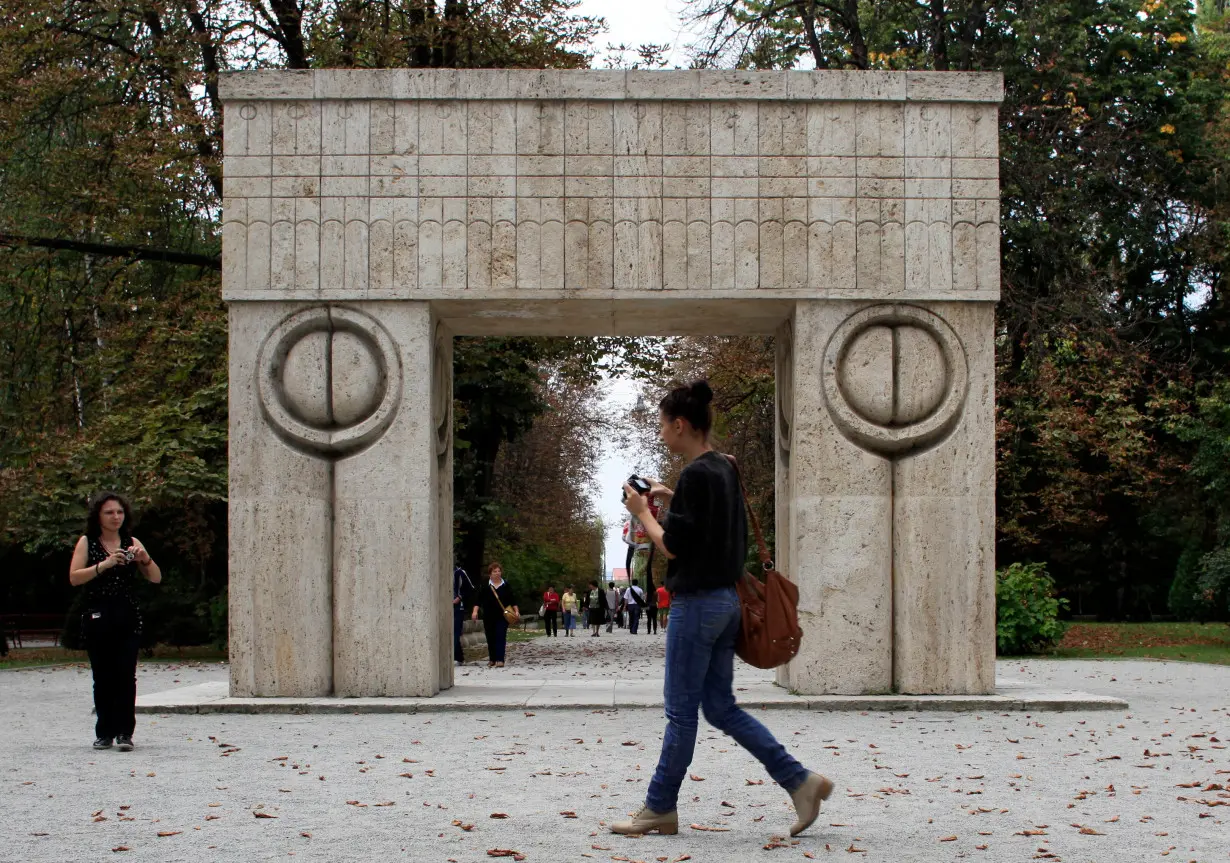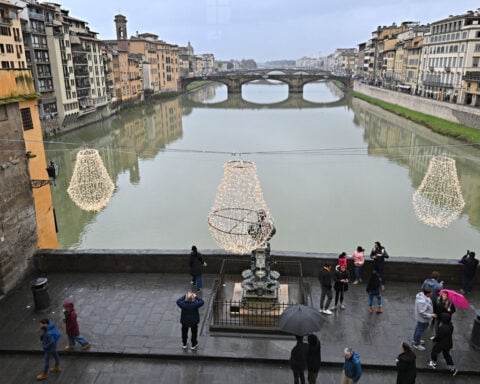BUCHAREST (Reuters) - UNESCO added a series of outdoor sculptures by Romanian modernist master Constantin Brancusi to its list of world heritage sites on Saturday, celebrating their place as one of the most notable examples of 20th-century public art.
Brancusi created the open-air collection that includes the "Endless Column" and the "Gate of the Kiss" in the small south-western Romanian town of Targu Jiu in 1937-1938 as a tribute to fallen World War I soldiers.
The five sculptural installations aligned on a 1.5-km-long axis along Targu Jiu's central Avenue of Heroes are one of the few Brancusi works located in Romania.
"The granted recognition forces us to protect the monumental ensemble, to keep it intact for future generations and for humanity's cultural memory," Romanian Culture Minister Raluca Turcan said.
Brancusi was born in the small village of Hobita near the Carpathian Mountains, but lived in Paris for most of his life.
He arrived in Paris in 1904 after an 18-month walk and eventually worked under Auguste Rodin. He left Rodin's studio in 1907 saying "nothing grows under big trees" and became one of the most influential artists of the 20th century.
He bequeathed his studio and some of his art to the French state after his death in 1957. He had wanted to leave his art to Romania, but the then communist government declined the offer.
In 2023, the western Romanian city of Timisoara staged the first retrospective exhibit of Brancusi works to be held in his home country in more than 50 years. A separate comprehensive Brancusi exhibit ended this month at the Centre Pompidou in Paris.
(Reporting by Luiza Ilie; editing by David Evans)

 Isolated Chicago communities secure money for a coveted transit project before Trump takes office
Isolated Chicago communities secure money for a coveted transit project before Trump takes office
 Caitlin Clark effect hasn't reversed the decades-long decline in girls basketball participation
Caitlin Clark effect hasn't reversed the decades-long decline in girls basketball participation
 The water was their livelihood. Now Thailand's sea nomads work to preserve a vanishing way of life
The water was their livelihood. Now Thailand's sea nomads work to preserve a vanishing way of life
 China says US is 'playing with fire' after latest military aid for Taiwan
China says US is 'playing with fire' after latest military aid for Taiwan
 Winter is hitting Gaza and many Palestinians have little protection from the cold
Winter is hitting Gaza and many Palestinians have little protection from the cold
 China calls Taiwan a 'red line', criticises new US military aid to island
China calls Taiwan a 'red line', criticises new US military aid to island
 Trump says he might demand Panama hand over canal
Trump says he might demand Panama hand over canal
 China's Nio says new Firefly EV to go on sale in Europe in H1 2025
China's Nio says new Firefly EV to go on sale in Europe in H1 2025
 Howard throws 2 TD passes to Smith to help Ohio State rout Tennessee 42-17 in CFP
Howard throws 2 TD passes to Smith to help Ohio State rout Tennessee 42-17 in CFP
 JuJu Watkins and No. 7 USC hold off Paige Bueckers and fourth-ranked UConn 72-70
JuJu Watkins and No. 7 USC hold off Paige Bueckers and fourth-ranked UConn 72-70








